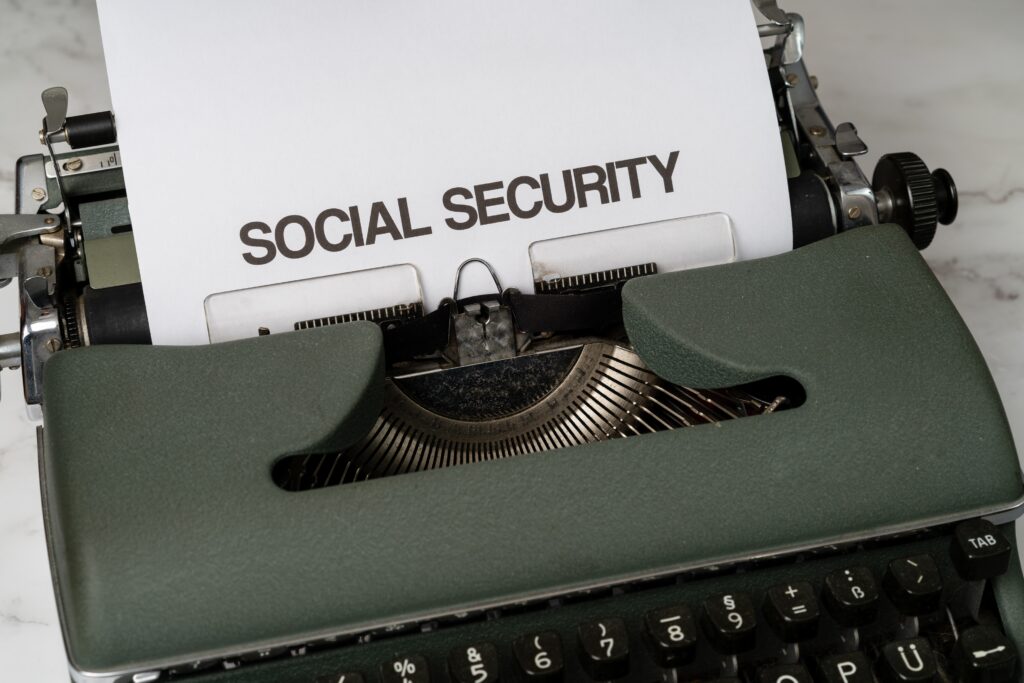You become eligible for French state national health coverage once you work in France or have lived here for over three months and established residency. However, to access the benefits of this coverage, you first need to get a Social Security number. With the number in hand, you can apply for a Carte Vitale, your French Health Insurance card, which allows you to obtain healthcare reimbursements much more quickly and easily.

What is a Social Security number?
In France, a Social Security number is a unique 15-digit identifier assigned to individuals covered by the country’s social security system, La Sécurité Sociale (or “Sécu“). It allows a person to be identified by all of the branches of Sécurité Sociale, including (!!!Acronym alert!!!):
- Health Insurance (Caisse Primaire d’Assurance Maladie or CPAM): This part of the system deals with medical services and claims for accident and illness benefits. It includes reimbursement for doctor’s visits, hospital stays, prescription medications, and preventive care.
- Family (Caisse des Allocations Familiales or CAF): This branch provides financial assistance to families with dependent children. It helps cover the costs of raising children, childcare, access to housing, etc.
- Pensions (Caisse Nationale d’Assurance Vieillesse or CNAV ): This branch deals with the state pension payments.
- Collection (URSSAF): the branch collects social security contributions from employers, employees and self-employed workers/entrepreneurs.
The Social Security system is funded through a combination of employee and employer contributions, as well as government subsidies.
Why do you need a Social Security number in France?
Your Social Security number is required for all administrative procedures involving Social Security branches above. For example, you need it when seeing a doctor, going to a hospital, dealing with family allowances, pensions, accessing the services of employment centres and receiving unemployment benefits. A Social Security number is essential to prove your rights and obtain reimbursement for your health expenses.
Furthermore, your Social Security number is an identification tool for setting up and accessing your Ameli account. The Ameli account is your dedicated platform in France for accessing Health Insurance services. Within your Ameli account, you can request a Carte Vitale, order a European Health Insurance Card (“EHIC”), and monitor the status of your payments and reimbursements.
Who has the right to Social Security in France?
To apply for a Social Security number, you must:
- Be born in France, or
- Be working in France; or
- Be a legal resident in France for at least three months.

How do you get a Social Security number if you don’t have it?
If you work for an employer, they will often manage the necessary procedures for you to arrange to have a Social Security number. Employers must complete all mandatory declarations and requests for employees to have social security coverage. However, depending on your particular situation, you will likely need to take responsibility for completing the declaration formalities yourself.
To register for the French Social Security System, you need to apply to the health insurance fund CPAM. Here are the steps to follow if the applicant is an employee or self-employed:
Step 1
Download and fill out an application form called “Demande d’ouverture des droits à l’assurance maladie”.
Step 2
Print the document and sign it.
Step 3
Mail it to CPAM with copies of all supporting documents, as required in your case. Keep copies of everything that you send. These are the documents you will be asked to provide:
– Proof of identity (ID card/passport), residence permit, residency card or long-stay visa
– Certified birth certificate (which you may be asked to translate into French by a certified translator)
– If you are employed: your latest payslip or employment contract
– If you are not employed: proof that you have been living in France for more than three months, e.g., three consecutive rent receipts or utility bills, rental agreement
– Your banking information Relevé d’identité bancaire (“RIB”) including IBAN (for reimbursement)
You can choose to make an appointment at the local CPAM office to submit the form and supporting documents in person instead of sending it by mail.
The actual CPAM office to which you need to mail the documents (or have the appointment in person) depends on where in France you live. This website gives you the mailing address based on your town or postcode (by clicking on “À qui transmettre ce formulaire?”)
How long does it take to get a Social Security number in France?
How long is a piece of string? It can take a couple of months to a year (or more…), so the best time to apply for one was yesterday. The second-best time is today.
You can expect to receive a temporary number first and relatively quickly — in around three weeks or three months. Unfortunately, this provisory number is not applicable towards all state aid programs, but you can still use it to claim reimbursement for your healthcare costs (which is super important!). If you need to visit a doctor, give them your temporary social security number and ask them for a paper form called feuille des soins. You will need to send this form to your local CPAM office (by snail mail) to be refunded for any treatment you’ve paid for.
Eventually, you will receive your permanent number and a document confirming your right to French state healthcare. Once you have this, you can apply for your French state healthcare card, the famous green Carte Vitale.
To keep things fresh, exciting and unpredictable, there is a chance you may be issued with a permanent number straight away. If the number you receive begins with a 1 or a 2, congratulations, the bureaucracy gods have smiled favourably upon you, and it’s a permanent number. If it begins with a 7 or 8, it’s a temporary number, and you’ll just have to wait, and wait.
What do all the digits in my Social Security number mean?
A permanent Social Security number works like this:
- 1st digit: the sex of the insured (1 for a man, 2 for a woman);
- 2 to 3: year of birth;
- 4 to 5: month of birth;
- 6 to 7: the department of birth (e.g. 75 for Paris);
- 8 to 10: the INSEE number of the municipality;
- 11 to 13: the order of birth registration within the municipality;
- 14 to 15: the security key (ranging from 1 to 97).

Where do I find more information?
You can find more information in English in this Amelie website section about social security insurance, benefits and healthcare rights in France. In addition, you will find there the telephone numbers of a dedicated French Health Insurance Advice Line where English speaking operators can further assist you with questions specific to your particular situation.
What has your experience been in getting your Social Security number in France? Share in the comments section below.



